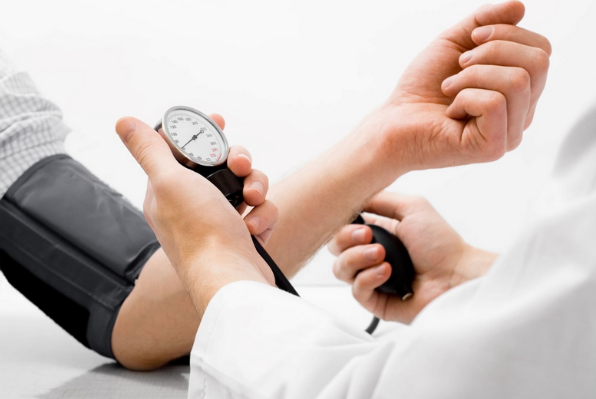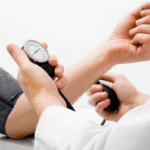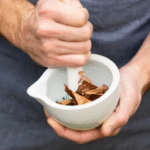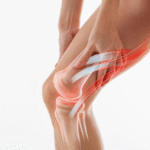Hypertension, also known as high blood pressure, is one of the most common chronic health problems worldwide. It occurs when the force of blood against the walls of your arteries remains consistently high. If left untreated, hypertension can lead to severe complications like heart attack, stroke, kidney disease, and even vision loss. Understanding its causes, warning signs, and management methods can help you maintain long-term cardiovascular health.
What is Hypertension?
Blood pressure is measured using two numbers — systolic (the pressure when your heart beats) and diastolic (the pressure when your heart rests between beats).
A healthy blood pressure level is around 120/80 mmHg.
If it consistently reads 140/90 mmHg or higher, you are likely suffering from hypertension. It is often categorized as:
-
Primary Hypertension – develops gradually over time without a known cause.
-
Secondary Hypertension – caused by underlying health issues such as kidney disease, thyroid imbalance, or certain medications.
Causes of Hypertension
Many factors contribute to the development of high blood pressure, including:
-
Excessive salt and fat intake
-
Sedentary lifestyle and lack of physical activity
-
Chronic stress and anxiety
-
Obesity and diabetes
-
Smoking and heavy alcohol use
-
Genetic predisposition and aging
Sometimes, hormonal disorders, kidney problems, or the use of certain birth control pills can also lead to secondary hypertension.
Common Symptoms
Hypertension is often called the “silent killer” because it rarely causes symptoms in its early stages. However, when the pressure gets dangerously high, the following signs may appear:
-
Severe or recurring headaches
-
Dizziness or blurred vision
-
Chest pain or irregular heartbeat
-
Shortness of breath
-
Nosebleeds or fatigue
If these symptoms occur frequently, immediate medical attention is necessary.
Diagnosis
To diagnose hypertension accurately, multiple blood pressure readings are taken on different days.
Doctors may also recommend:
-
Blood tests and urine tests
-
ECG or echocardiogram
-
Kidney function tests
-
Cholesterol and glucose screening
At-home blood pressure monitoring is useful, but readings should always be confirmed by a healthcare professional.
Treatment and Medications
The management of hypertension involves both lifestyle changes and medication.
Lifestyle Modifications:
-
Reduce salt intake: Limit processed foods and salty snacks.
-
Eat healthy: Follow the DASH (Dietary Approaches to Stop Hypertension) diet.
-
Exercise regularly: Aim for 30 minutes of physical activity daily.
-
Quit smoking and limit alcohol consumption.
-
Manage stress: Meditation, yoga, and relaxation techniques help lower blood pressure.
-
Maintain a healthy weight: Even small weight loss can make a big difference.
Medications:
Doctors may prescribe one or more of the following based on your condition:
-
ACE inhibitors
-
Beta-blockers
-
Calcium channel blockers
-
Diuretics
-
Angiotensin II receptor blockers (ARBs)
It is crucial to take medications consistently and never stop them without your doctor’s advice.
Complications of Untreated Hypertension
If ignored, hypertension can damage vital organs and lead to:
-
Heart failure or heart attack
-
Stroke
-
Chronic kidney disease
-
Vision loss
-
Aneurysm
-
Memory problems or dementia
That’s why early diagnosis and control are essential for long-term health.
Prevention Tips
-
Eat more fruits, vegetables, and fiber-rich foods.
-
Reduce caffeine and sugar intake.
-
Avoid smoking and manage stress.
-
Monitor blood pressure regularly — especially if you have a family history of hypertension.
-
Stay physically active and maintain a healthy sleep routine.
When to See a Doctor
You should consult a healthcare professional if:
-
Your blood pressure consistently reads 140/90 mmHg or higher.
-
You experience chest pain, confusion, or sudden weakness.
-
You are pregnant and notice swelling or headaches.
Early intervention can prevent life-threatening complications.
Useful Links and References
Conclusion
Hypertension is a manageable condition if detected early and treated appropriately. Through lifestyle changes, regular checkups, and adherence to prescribed therapy, you can live a healthy, active life without the risks associated with high blood pressure. Remember — control today, protect tomorrow.







Leave a Reply
You must be logged in to post a comment.